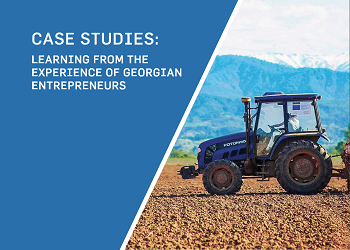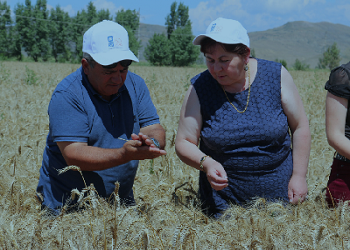- Details
This volume brings together eight case studies of young Georgian entrepreneurs, men and women who had the courage to take a risk and set up their own businesses. The eight case studies allow readers to accompany these entrepreneurs on the challenging journey of doing business in a very difficult environment, with very limited access to finance, knowledge and modern technology. They worked in a very small market inundated by low-quality but cheap imports, and with many small competitors producing roughly the same (basic) goods and services, thus driving each other’s profit margins to zero, and with no skilled and disciplined labor to count on and hardly anybody to approach for advice.
This volume is not a regular textbook. The main idea is not to teach, but to inspire and show that people can change their own lives and the lives of others by taking calculated risks; to show that one should not dogmatically stick to any business model or idea, but rather be quick to admit to their mistakes (which will always happen) and use them as an opportunity to learn, make adjustments and start again.
- Details
In December 2015 the State Commission on Migration Issues (SCMI) adopted a Medium Migration Profile (MMP). The MMP was elaborated with the active participation of all its member state agencies and the support of a project funded
by the European Union (EU), ´Enhancing Migration Management in Georgia (ENIGMMA), implemented by the International Centre for Migration Policy Development (ICMPD). The goal of the MMP is to foster evidence-based policymaking
in the country and it covers all major aspects of migratory processes as well as its impact on Georgia’s demography, economy and social cohesion. Since its elaboration, the MMP has proved a valuable source of migration-related data and analysis both for local and international institutions and researchers.
- Details
The UNDP Farmer Knowledge Project was carried out in two phases. Data on Georgian rural households1 was collected by the polling agency Analysis and Consulting Team (ACT) between February and July 2015. 2 This data was analyzed with the purpose of producing policy recommendations by the ISET Policy Institute between November 2015 and July 2016.
The project pursued three overarching goals: (i) to understand which gaps in agricultural knowledge of Georgian farmers have the strongest impact on farmers’ productivity and income, and recommend relevant agricultural extension measures; (ii) to predict structural and social changes in Georgia’s agriculture under different scenarios; (iii) to suggest appropriate policy interventions to mitigate or encourage these changes.













